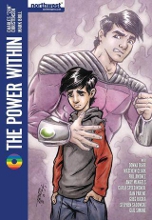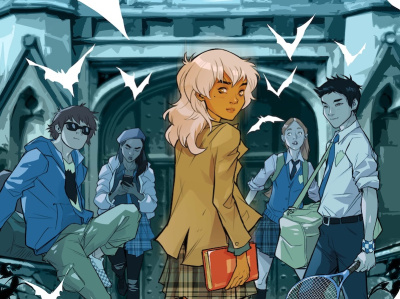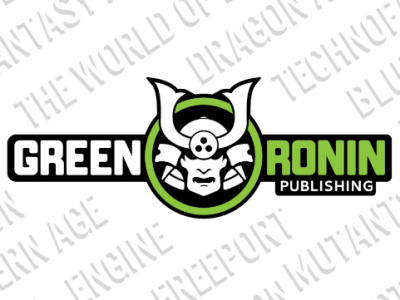 Confessions of a Comic Book Guy is a weekly column by Steve Bennett of Super-Fly Comics and Games in Yellow Springs, Ohio. This week, Bennett looks at anti-bullying campaigns.
Confessions of a Comic Book Guy is a weekly column by Steve Bennett of Super-Fly Comics and Games in Yellow Springs, Ohio. This week, Bennett looks at anti-bullying campaigns.I don't read DC's licensed comics nearly as often as I probably should, given how much I enjoy them when I remember they’re actually there. But the last time I did, while reading Looney Tunes #20 I saw this public service ad for the "Stop Bullying: Speak Up" campaign Cartoon Network is currently running. It's part of an anti-bullying campaign which distributes "bully prevention toolkits" to middle and high schools which outlines their three point program: tell an adult about bullying, be supportive of those who are bullied, and get involved and encourage everyone to speak up when they see bullying.
There are all sorts of anti-bullying campaigns out there right now, like the upcoming one from the Ad Council and Marlo Thomas’'Free To Be Foundation that will feature TV, print and web ads starting in October. Disney's Friends for Change program is putting out a anti-bullying message*, and Nickelodeon has established a two year commitment to fight bullying in schools. The Center for Disease Control has added bullying to its survey of risk behavior in schools and Obama administration officials have vowed to make bullying a national priority. There's even an International Bullying Association.
As to what any of this has to do with any of us, as I've previously wondered (see "Confessions of a Comic Book Guy--After the Con"), I don't know why Marvel or DC doesn't have a program like this of their own. Given how deeply the whole bully-victim paradigm is imbedded into the whole adolescent power/revenge fantasy integral to superhero comics, it really is more than surprising. Not to mention how many comic book readers, and creators, must have at one time been bullied misfits. Is it because most of their titles now skew a lot older than they once did (though if that was the case you'd think they would find a way to participate in the "It Gets Better" campaign)? Is it just an example of an indifferent corporate culture at work or, as I once sarcastically suggested, is it a cynical economic decision (i.e., bullies buy comics too)?
Due disclosure compels me to confess that part of the reason I support such programs is because (as you might have already guessed) I was bullied as a kid, though I should probably stress my experiences weren't nearly as bad as some of the nightmare stories I've heard over the years. My worst experiences were mostly confined to middle school, but thanks to reading Amazing Spider-Man I fully expected things to get worse when I started high school. But they actually got a little better; as enjoyable as torturing someone who can't fight back can be, once would-be bullies could drive, most usually found other forms of amusement (sex, drugs, etc.).
Though I won't deny there's part of me that’s slightly suspicious of just how much actual good such programs do. Having been bullied I tend to take less of a soft social science approach to the problem and one more in keeping with Rooster Cogburn's "you can’t serve papers on a rat" philosophy. Meaning, you stop bullying by making bullies stop, not figuring out why they bully.
But if nothing else programs like these at least establish bullying is unacceptable, which would have seemed like science fiction back in the world I grew up in. I don't want to in any way imply the mostly safe, predominantly middle class schools I went to were like the Wild West by way of Lord of the Flies. But then a little violent social darwinism was universally considered a natural part of the education process; as long as at the end of the day everyone could go home under their own power, the teachers ("I don't care who started it") didn't seem to notice.
And there are anti-bullying comics, like 2011's The Power Within by Charles "Zan" Christensen and Mark Brill, which along with its 25-page lead story features contributions from Gail Simone, Phil Jimenez, Greg Rucka and Dan Parent. And more recently Rise Above, a comic written by John A. Wilcox and Stan Goldberg about a girl being bullied after moving to a new town. It's the first in a series of educational, not-for-profit from Archie co-CEO Nancy Silberkleit's Rise Above Social Issues Foundation. But there could and should be more.
* Which sadly seems at odds with their programming; both their live-action and animated shows are regularly populated by homicidal bullies; Fish Tails, Mr. Young, even the otherwise overwhelmingly nice Phineas & Ferb has a resident bully in Buford Von Stomm. Although the kind-hearted super scientist brothers have more or less domesticated the menace, I'd like to see the producers address a serious issue in a serious fashion.
The opinions expressed in this column are solely those of the writer, and do not necessarily reflect the views of the editorial staff of ICv2.com.








